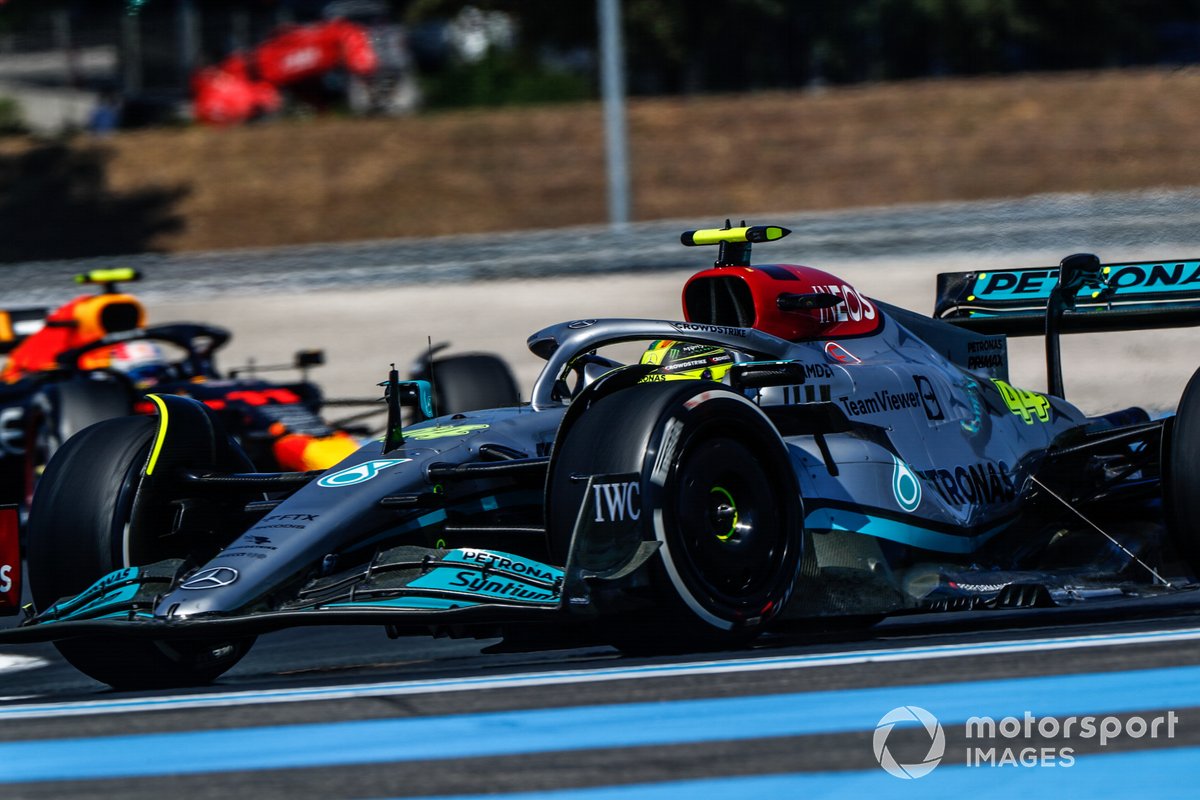
In a bid to curb the porpoising issue faced by a number of teams in the early part of this season under the new technical regulations, the FIA announced ahead of the French Grand Prix it would be tweaking the rules for next year on safety grounds.
This included raising the floor edges by 25mm, as well as introducing more stringent checks on the floors, but it has faced pushback from a number of teams that could look to challenge the FIA.
Red Bull has been vocal in its opposition to any rule changes throughout this year, saying teams who have not encountered porpoising should not pay the price for others who have struggled more.
Asked by Motorsport.com after Sunday’s French Grand Prix how he thought the saga would be resolved, Horner called on F1’s rulemakers to “just follow normal process.”
“Again, I didn’t see any issues here [in France],” Horner said. “I think the last three or four races, you really didn’t see any issues.
"So I think that there just needs to be a common sense solution, not rewriting the rulebook for next year at a point of the year, with budget caps where they are, which is just too late.
“I think it’s actually an even bigger issue for some of the smaller teams, that quite simply would not have the resource to be able to react.
“I think whatever measure is taken, it just needs to be sensible.”

Horner claimed earlier in the race weekend that the lobbying for the floor changes was all to help a “certain team”, referring to Mercedes, which has struggled more than most with bouncing on its car.
Mercedes has denied this is the case, saying the floor tweaks are not guaranteed to improve its form.
Under the FIA’s technical regulations, safety changes can be made without the support of teams “without notice or delay” but there is doubt from a number of teams that it is a genuine safety issue.
“I’d actually dispute it is a safety issue,” Horner said on Sunday. “It’s down to a team how it chooses to operate its car. You can remove the porpoising very easily, but that’s at the sacrifice of performance.
“Therefore, it’s not the duty of the FIA to ensure that a team is competitive. Otherwise, we’d have had engine BOP [balance of performance] over the last 10 years.”

Horner acknowledged that part of the problem was that there was no definition of what constitutes a safety issue under the FIA regulations, and said safety was “a very easy card to stand behind.”
“Because theoretically, it’s not then the subject to a commission or a World Council vote,” Horner said.
“I think something can be done, but I think that it just needs to be sensible. The numbers that have been discussed are just way too extreme compared to the reality of what probably could be done.”
He added that F1 had to be careful to avoid “overreacting on a few samples at a few one-off circuits” and that he was confident teams would converge in managing the issue over the winter anyway without the proposed changes.
Although there is a split between the teams in the row, all have stressed the need for a quick resolution as they begin to consider the impact of any rule changes on their 2023 cars.
Horner thought that smaller teams who opposed the tweaks were “even more excited about it than we are” and would have “a bigger voice about this than me.”
"It’s too late to redesign a car now for next year,” Horner said. “If they’re talking about the 25mm rises in the floor height, that’s a completely different set of aerodynamics.”







